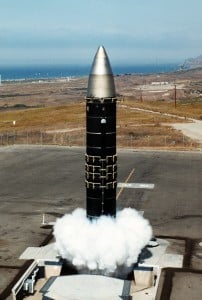Several key Senate Republicans, McConnell, Graham and Kyl are leading the resistance to the ratification of the START (Strategic Arms Reduction Treaty), claiming that the Senate needs more time to review the fine print on the treaty that would specify limits of:
– 1,550 deployed warheads, which are about 30% lower than the upper warhead limit of the Moscow Treaty;
– 800 deployed and non-deployed intercontinental ballistic missile (ICBM) launchers, submarine launched ballistic missile (SLBM) launchers, and heavy bombers – equipped for nuclear weapons; and
– 700 for deployed ICBMs, SLBMs, and heavy bombers equipped for nuclear weapons.
(Source: Whitehouse.gov)

START needs to be approved by the Senate and would cut both countries’ nuclear stockpile by about 30 percent. But the non-STARTers don’t want to vote during the lame-duck session of Congress because, apparently, there’s not enough time to overcome “complex and unresolved issues.” The non-STARTers allege that ratification would curtail America’s right to develop a missile defense system. Never mind the language in the treaty’s preamble that restricts it from interfering with missile defense. The treaty also seeks $700 million more for missile defense AND earmarks $86.2 billion for maintaining current operations of the nuclear weapons complex. Really, new START sounds like a great deal — a compromise that both hawks and doves could learn to love.
However, the hawks argue that reducing our nuclear arsenal would compromise national security — a real stretch if you ask me. How many times over would we need to destroy a potential adversary? I am sure I don’t have to remind the good senators that our nuclear deterrent is by far the most credible on the planet — after all, we can deliver via air, land, sea and even undersea.
The diplomatic payoff for America’s ratification of START is that it would signal to the international community that we are committed to the provisions of the Nuclear Non-Proliferation Treaty. Especially the provision that requires all signatories to work towards a “Treaty on general and complete disarmament under strict and effective international control.” It becomes really hard to convince other nations to do away with nuclear weaponry development when we are not taking credible steps to curtail our super-sized stockpiles.
The nuclear threat in the 21st century emanates not from states that are known to possess nuclear missiles (remember, all ballistic missiles have return addresses), but from terrorists groups hell bent on delivering nuclear pain to our front door via creative means. Even the Secretary of Defense Gates and Pentagon brass see the clear benefits of START and the inherent hypocrisy of not ratifying the treaty.
Senators, let’s get on with it — vote YES on START.